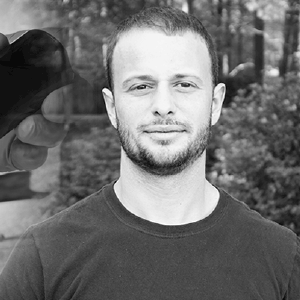How Methadone Can Make Addiction Worse

Issues With Methadone
It is easy to be terrified when your loved one is addicted to opioids, given that so many people pass away each year from using heroin, fentanyl, and prescription drugs.
One of the most common treatment options is medically assisted treatment. This approach includes Suboxone, Vivitrol, and methadone.
Methadone was the first drug replacement for opioids and it is still widely used today. However, there are some real things you should be aware of before considering this method of treatment.
It Is the Hardest Opioid to Get Off
The methodology of methadone treatment is that you are given a prescription and you receive drug tests to make sure you are not taking any other illicit substances. The person undergoing the treatment then goes each day to the methadone clinic to get their script.
The problem is that while the programs often offer counseling, a study called Stuck in Limbo found that many participants get caught in a vicious cycle. According to the study: “…as the treatment does not remove painful emotions, they [participants] supplement OMT [opioid maintenance treatment] with illegal substances, violate the OMT regulations, and run the risk of being excluded from the programme. In fear of losing the replacement opioid, they conceal parts of the addiction they seek treatment for and end up lying and cheating instead of exploring strategies for reducing and managing addiction.”
The other critical issue is that if the person wants to get off the methadone or is sick of having to go through getting it every day, they can find themselves in an impasse due to the fact that coming off methadone can be extremely painful and withdrawal symptoms can be long-lasting.
Here’s a first-hand account of what coming off of methadone is like:
“The one thing I can say today is,
I WILL NEVER TOUCH THAT EVIL DRUG AGAIN.”
“After withdrawal at the hospital, I remember not being able to get out of bed for three days. It was too painful to move. Imagine the pain of a thousand needles poking you in your stomach, hot/cold flashes and the worst feeling of restlessness. After the withdrawals settled, I couldn’t eat or sleep for about a month. My body temp was off also. The one thing I can say today is, I WILL NEVER TOUCH THAT EVIL DRUG AGAIN.“
—Graduate JS Drug Free since 2/18
Drug Dealers Target Methadone Clinics
Imagine you’re trying to get your life together and every day when you walk out from having done something to try to better your life, there stands a person or group of people tempting you to go back to your old ways. For many that go to methadone clinics, this has become the case.
With reports from across the US that many drug dealers target methadone clinics to peddle drugs, both the workers at clinics and those going to clinics seeking help with their addiction are frustrated.
Jerry Clark a patient of the methadone clinic in San Antonio, said in an interview with ABC 12 News, “The main thing is the selling of drugs. People turn to Xanax. When you take Xanax with methadone, it almost creates that exact feeling of the heroin.”
While people who go on methadone may be earnest about wanting to quit and to put their life back together, this does not always go as planned. With core issues in their substance abuse going unhandled, many simply turn to use other drugs.
People Continue to Abuse Other Drugs
Most clinics do require regular drug tests, though this can simply turn into another issue where patients spend time trying to avoid getting caught.
A few people we interviewed said that upon failing drug tests for other substances, their doctor would simply tell them to stop and recommend they get more therapy, while another said the only punishment for failing a drug test was that you would lose your “take-home” privileges. (Take home means the patient is allowed to take a certain amount of daily doses home with them, so they don’t need to come to the clinic every day.)
I imagine many of the people who work at clinics know what it would mean to take away someone’s methadone dose. This means that as a prescriber if you cut someone off, you are essentially guaranteeing that the person will go back to using heroin to avoid withdrawals.
There are many types of treatment and methadone is far from being the only option. In fact, it is strange to me that with so many other forms of treatment out there, we still continue to push this model of substituting one addictive drug with another as a good option.
What do you think?

